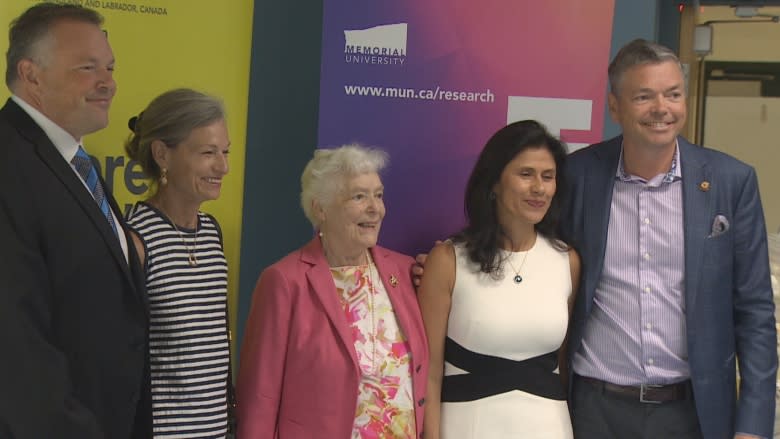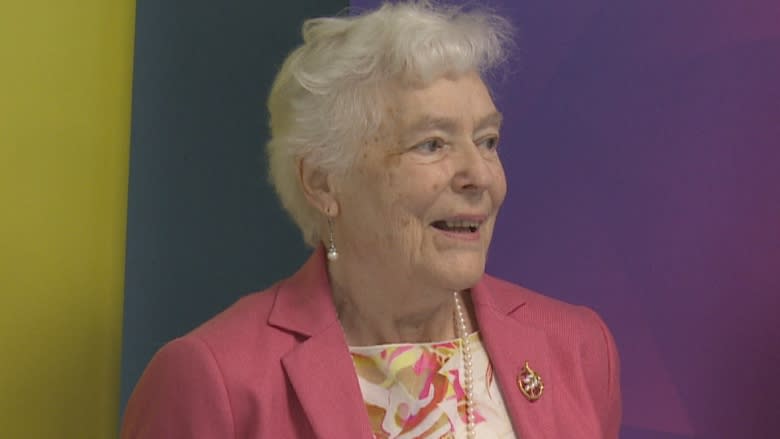Dobbin family pays for MUN blue whale, in tribute to mom
Nobody's saying how much it cost, but Memorial University of Newfoundland revealed Thursday who is footing the bill for a major exhibit in its new core science building.
Mark and Craig Dobbin, with their spouses Sandra and Lisa, donated the core funding to restore and eventually install the skeleton of a blue whale that washed ashore in western Newfoundland in May 2014.
The gift — recognized in Thursday's thank-you ceremony — is in honour of their mother, Eleanor Penney Dobbin, who attended the event.
"Memorial is recognized internationally for research and expertise related to ocean sciences," said Mark Dobbin.
"This whale skeleton is an important and dramatic illustration of that fact."
Mother 'overwhelmed' to learn of gift
Dobbin said his mother is originally from Burin and he remembers touring an island off the peninsula as a boy.
"I remember seeing the remains of an old, abandoned whaling station and was very struck as a young man on the tragedy of hunting animals as magnificent as whales, and that stayed with me," he said.
"I think that was one of the reasons why we undertook the gift."
Dobbin said his mother was "a little taken aback and overwhelmed" when they they told her about their gift about two weeks ago.
There are as few as 5,000 blue whales left in the world, according to MUN, with 200-250 in the Western North Atlantic, meaning that population is critically endangered.
When a carcass washed ashore in Trout River four years ago, the Royal Ontario Museum sent a team to preserve it and the skeleton is now on display in Toronto.
But the ROM did not have the resources to preserve a second whale that ended up on the beach in Rocky Harbour. So the Dobbins approached MUN about securing it for the university campus in St. John's.
The skeleton, now cleaned and in storage in Ontario, will be on display in the science building when it opens in 2020.
"The ability to display a blue whale skeleton in this way places Memorial among a select group worldwide," said university president Gary Kachanoski.
Read more articles from CBC Newfoundland and Labrador




